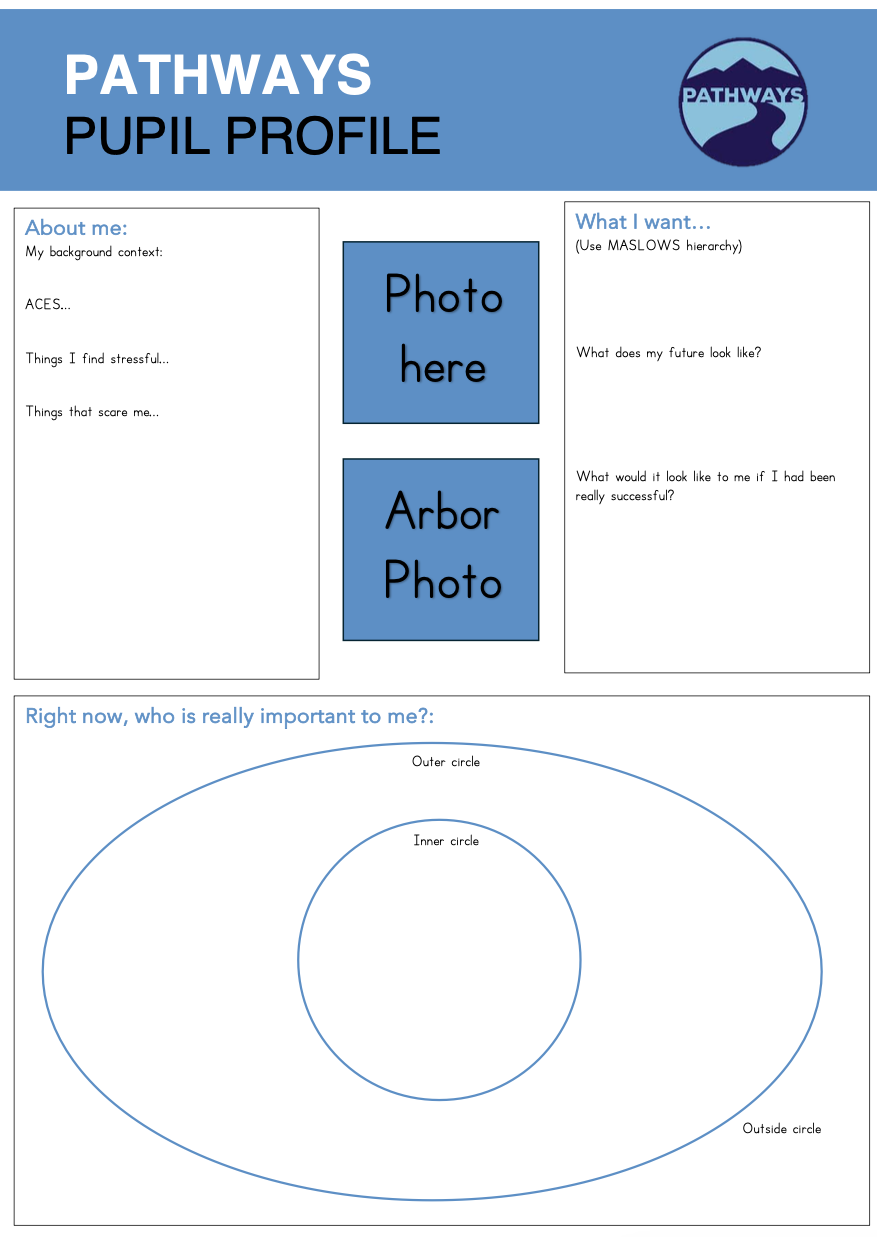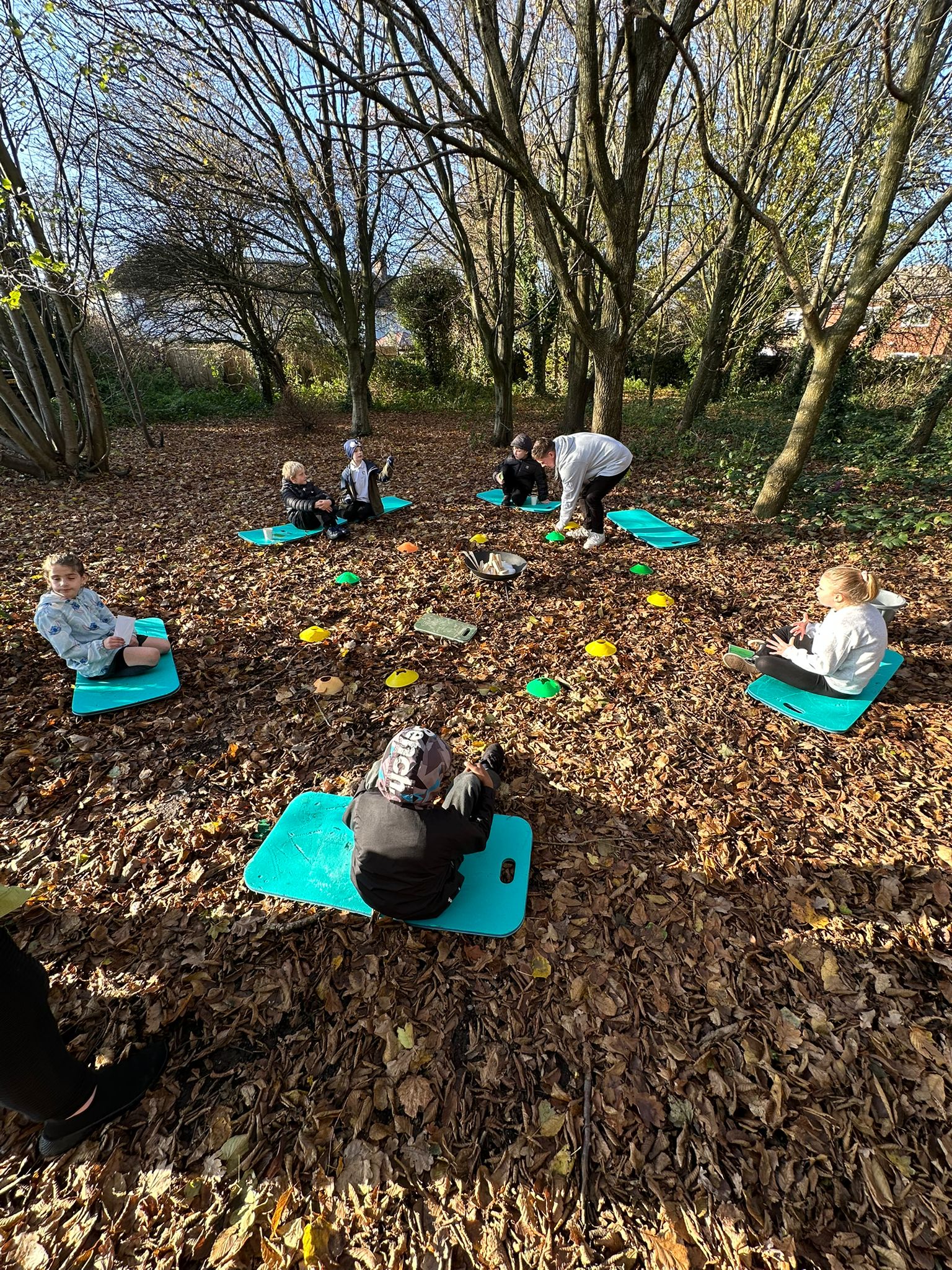Pathways
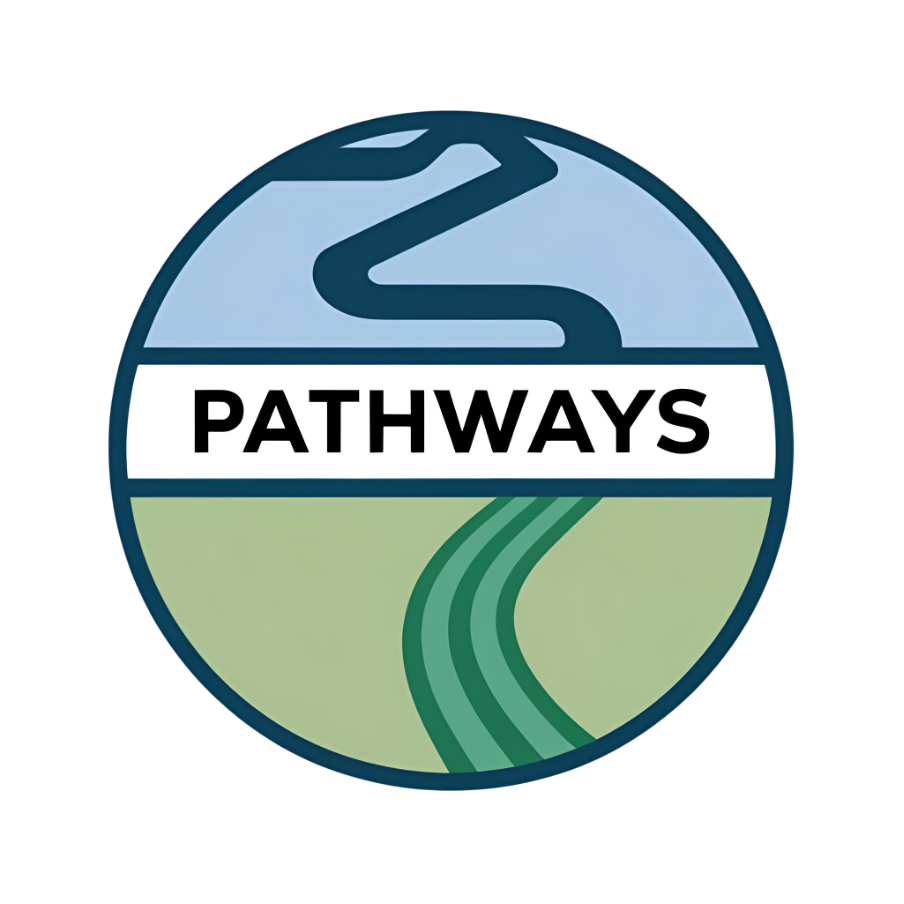
WELCOME TO PATHWAYS AT MASON MOOR
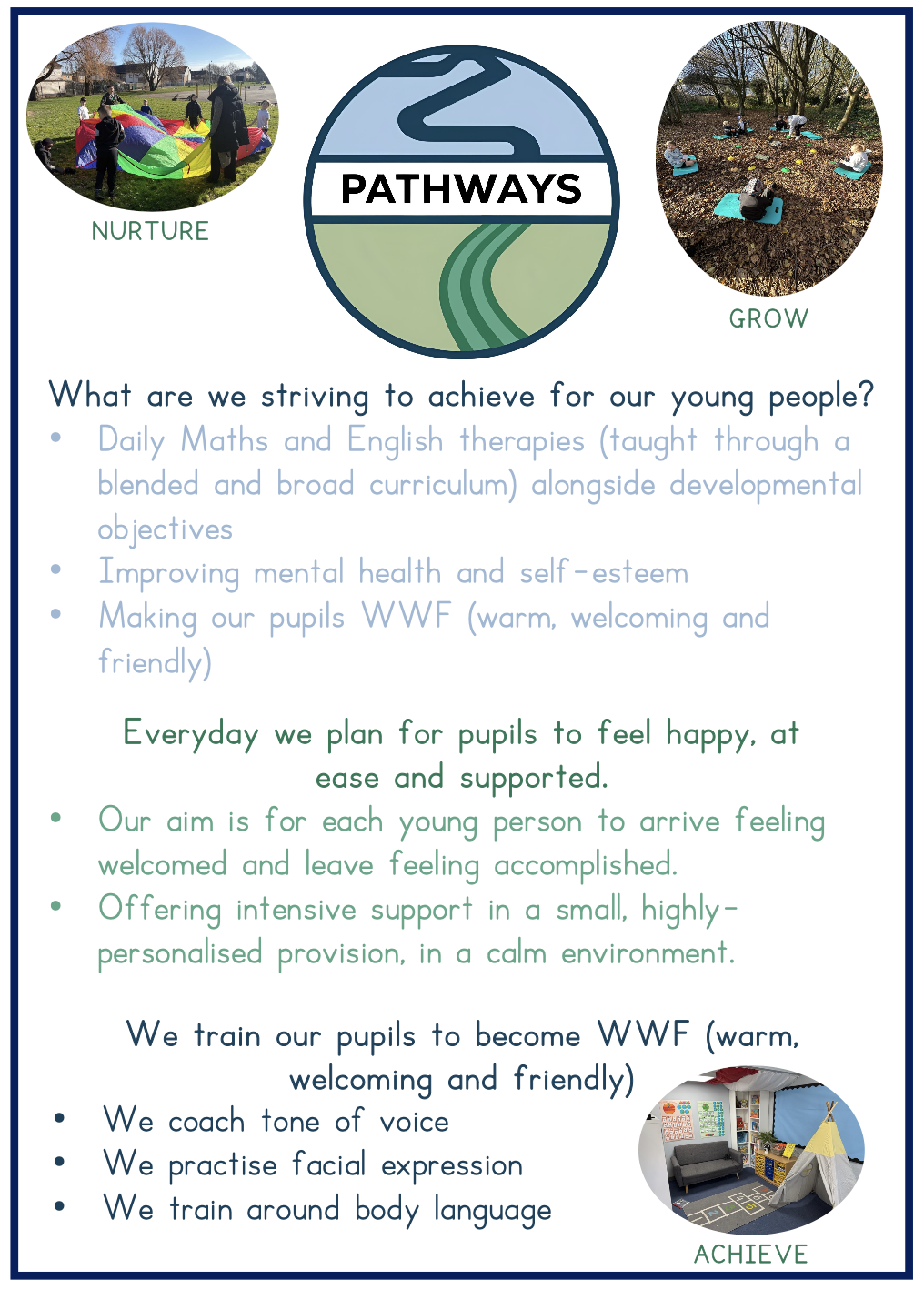
"Every child deserves a champion; an adult who will never give up on them, who understands the power of human connection and insists they become the best they can possibly be"
Rita Pierson
PATHWAYS TEAM
| Pathways Specialist Teacher - Achieve Room Lead | Mr C. Blackall |
| Pathways HLTA - Nurture Room Lead | Mr. B Sutton |
| Pathways Teaching Assistant | Ms M McGrattan |
| Pathways HLTA - Grow Room Lead | Ms L Gerrard |
| Deputy Head of Inclusion & Outreach support | Mrs D Ashbolt-Smith |
St Mary’s Partnership have worked in collaboration with experienced and knowledgeable cross-city colleagues within in Southampton City Council’s SEND Team to create an innovative and inclusive primary provision. This is supported by our ethos of “whatever it takes”. Our Pathways to Learning Provision will enable every child and their family to have high-quality support “no matter what”. Our vision is to create an offer that supports other primary school colleagues to see and learn from, enabling us all to develop city-wide provision for the future.
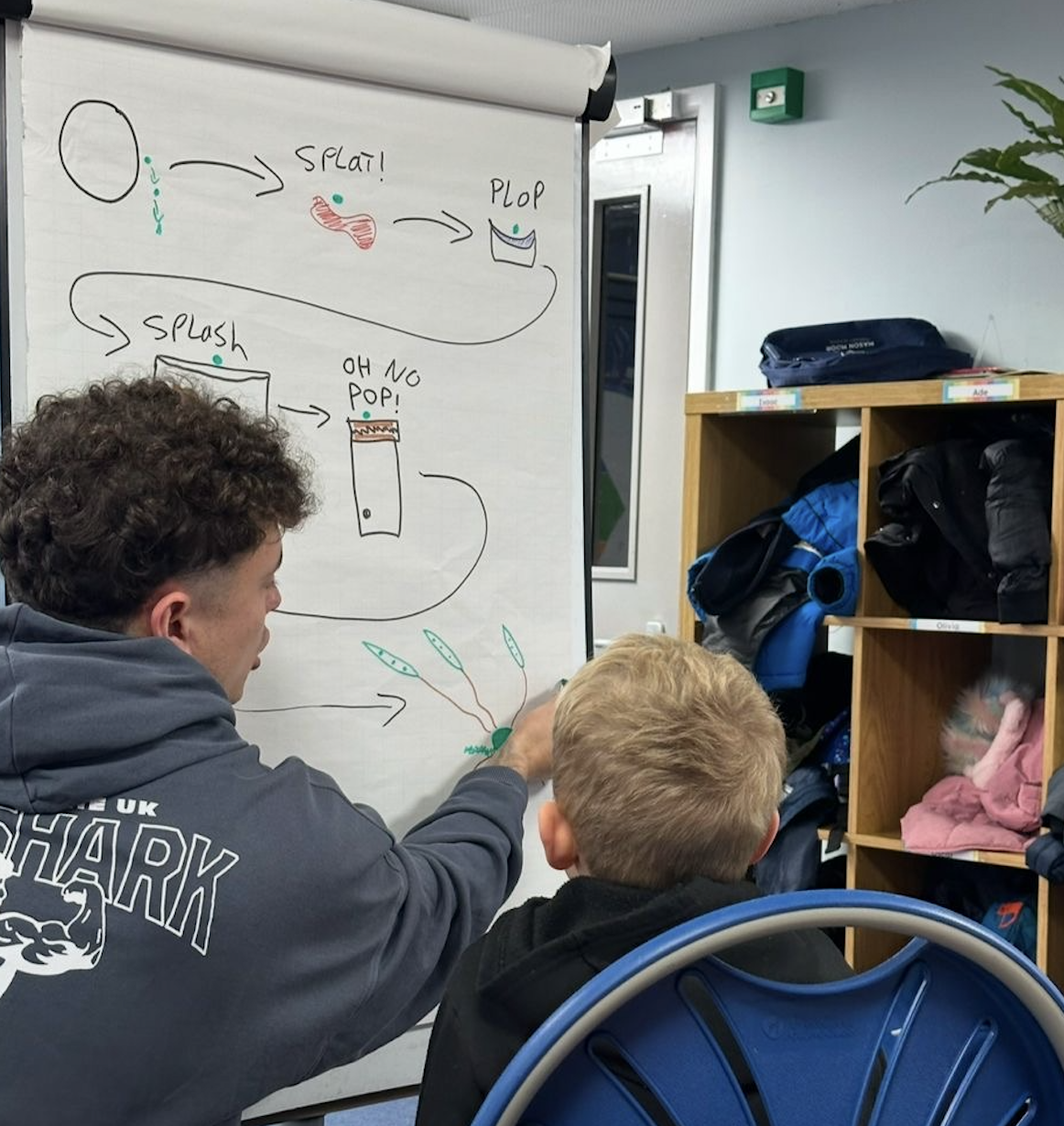
Pathways at Mason Moor Primary School has been developed as a response to the increase in SEMH needs in Southampton primary school settings. The provision is developed to support a graduated approach to SEMH needs in the city. Pathways aim to support the child’s needs and work towards a reintegration into a mainstream school for the pupil, some however, may require a move to a special school.
Pupils at risk of permanent exclusion or requiring additional social, emotional and mental health support are referred to Pathways, a bespoke trauma-informed and nurture-based provision, staffed by knowledgeable and skilled professionals. Creating a sense of belonging in school ensures pupil motivation, improved academic achievement, reductions in absenteeism and other positive social outcomes including health and wellbeing.
HOW IS THE PROVISION STRUCTURED?
Pathways is split into three separate classes: Intervention, Assessments and Placement. Some children will move through all three pathways whereas others may only access one of the three pathways. All Pathways aim to support the child’s needs and work towards a reintegration into a mainstream school for the pupil, some however, may require a move to a special school.
The classes follow our school values in name:
- Nurture class (the initial class, for those who may have faced trauma, feel worried or anxious or may have been out of mainstream for some time).
- Grow class (the assessment class, and the class children who are settled migrate to once they are ready).
- Achieve class (our third class and one where our permanent Y5/Y6 children who are placed at the provision will be).
Pathways to Learning is situated in a quiet annexe of the school as this allows the children to feel safe and secure. Pupils access a bespoke timetable which includes our Lion Academy Trust Curriculum of Maths, Writing and Reading, as well as non-core subjects including, PSHE and RE. There are afternoon interventions to support pupils’ SEMH needs.
These interventions include PATHS (Promoting Alternative Thinking Strategies), My Happy Mind, PE, as well as mindfulness activities. In collaboration with individual pupils their learning is RAG rated. Staff support the children to understanding and recognise their emotions using The Zones of Regulation. Maslow’s Hierarchy of Needs is at the core of the support within Pathways to Learning. The CALM app is also used throughout the day to encourage mindfulness and calm. Children also part in Outdoor Learning and this is delivered by our team using our outdoor learning lodge and wooded area
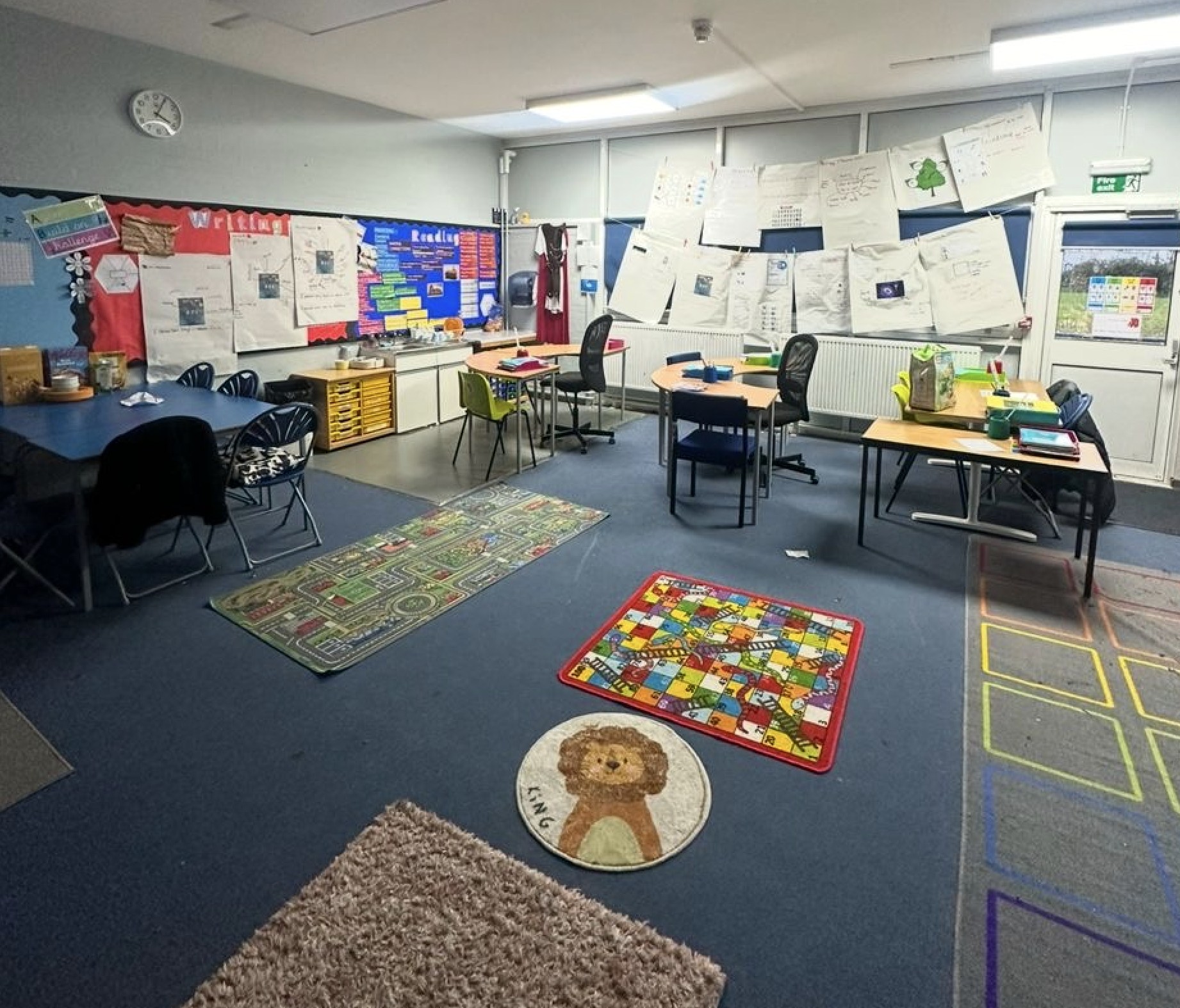
Governance & ACCOUNTABILITY
All intervention placements into the setting are agreed at SEND panel which includes representatives from:
- The LA
- Special Schools
- Mainstream schools
- Social care
- Mason Moor Pathways Provision
The LA will visit on a termly basis to carry out a monitoring visit of the provision. Additionally half termly meetings will be planned to review individual children and support planning of next steps. Where pupils are identified to move between Pathways, such as Intervention to Assessment, these will be ratified at the SEND Complex case meeting.
Accountability for the provision is evaluated through our external team - led by Gehane Gordelier and associates. This ensures that leaders are continually reviewing provision, access to provision and the wider work the team do.
Recent provision feedback(Autumn 2 2024)
The Pathways unit is a specially created alternative provision for pupils with high levels of SEMH. It is commissioned by the local authority but led and managed by the school. It started two weeks ago. The provision also caters for pupils whose needs arise from trauma and social and emotional mental health needs. Some of the pupils have come from other Southampton schools, where they have not attended for some time. Key staff have rapidly established a strong rapport with pupils in this part of the school. The staff check on how pupils are feeling and keep daily records. Every pupil already receives a range of therapies including to help them to self-regulate and to develop their handwriting skills. Some of these pupils benefit from having access to one of the school’s therapy dogs. This helps to bring some of the most vulnerable pupils joy, comfort and reassurance. The school is now to developing the curriculum offer for alternative pathways, to ensure that teachers are clear about the progression of skills they need to support academic growth of extremely vulnerable children.
PATHWAYS & PARTNERS
HOME-SCHOOL ACCOUNTABILITY
Children on assessment block pathways at Mason Moor, and those in paid placements, need to have a strong and stable link with their home school. It is recognised that by the time these placements happen, sometimes issues have occurred between home and school. However, we insist and need to ensure that a child had a relational link back to their home school to ensure that work can be done to facilitate a possible return.
Safeguarding
Home schools must contact, and have meaningful conversations, with the Pathways team weekly. It is the responsibility of the host-school to ensure that a 'check-in' suffices their own safeguarding records and procedures.
Pathways uses CPOMS as a concern management recording tool. These are able to be transferred to and from the setting.
CURRICULUM
Children follow a blended curriculum based on assessment on arrival. We utilise our school's strong curriculum (Lion Learning Pathways) for those who can access and should be studying the National Curriculum.
Teachers make decisions, based on need, to identify where in a learning journey a child should start and navigate from there. It is imperative that information shared at transfer, aids the teachers of Pathways to plan meaningful learning. Where possible, we ask on transfer for a child's books and recent learning to be sent in advance. This helps to support our assessment.
Curriculum aims and goals are further enhanced by ensuring that a child's developmental needs are also catered for. We utilise the PAThS (Promoting Alternative Thinking Strategies) curriculum from the NSPCC.
SPRING TIMETABLE 2025
|
|
Monday |
Tuesday |
Wednesday |
Thursday |
Friday |
|
8.30-9.00 |
Rolling breakfast, Check-in, morning handwriting task and Letterjoin |
Rolling breakfast, Check-in, morning handwriting task and Letterjoin |
Rolling breakfast, Check-in, morning handwriting task and Letterjoin |
Rolling breakfast, Check-in, morning handwriting task and Letterjoin |
Rolling breakfast, Check-in, morning handwriting task and Letterjoin |
|
9.00-9.15 |
Circuits |
|
|
|
|
|
9.15-10.00 |
Writing (Y6 mainstream lessons) |
Writing (Y6 mainstream lessons) |
Writing (Y6 mainstream lessons) |
Writing (Y6 mainstream lessons) |
Writing (Y6 mainstream lessons) |
|
10.00-10.10 |
Bucket (MMcG leading) |
Bucket (MMcG leading) |
Bucket (MMcG leading) |
Bucket (MMcG leading) |
Bucket (MMcG leading) |
|
10.10-10.30 |
Break (outdoors) |
||||
|
10.30-11.10 |
PSHE |
Outdoor learning |
My Happy Mind |
Outdoor learning |
PSHE |
|
11.10-11.25 |
Classroom visits |
Classroom visits |
Classroom visits |
Classroom visits |
Classroom visits |
|
11.25-12.00 |
Maths (Y6 mainstream lesson) |
Maths (Y6 mainstream lesson) |
Maths (Y6 mainstream lesson) |
Maths (Y6 mainstream lesson) |
Maths (Y6 mainstream lesson) |
|
12.00-12.20 |
Lunch (12.00-12.30 Boston and Mandy lunch, 12.30-1.00 Chris and Will lunch) |
||||
|
12.20-12.30 |
BBC bitesize and colouring |
BBC bitesize and colouring |
BBC bitesize and colouring |
BBC bitesize and colouring |
BBC bitesize and colouring |
|
12.30-1.00 |
Dodgeball |
Dodgeball |
Dodgeball |
Dodgeball |
Dodgeball |
|
1.00-1.30 |
PATHS |
PATHS |
PATHS |
PATHS |
PATHS |
|
1.30-2.00 |
Board games (taking turns) |
Board games (taking turns) |
Board games (taking turns) |
Board games (taking turns) |
Board games (taking turns) |
|
2.00-2.50 |
MMcG Therapies BS Pip and Pap reading WB boxing |
MMcG Therapies BS Pip and Pap reading WB boxing |
MMcG Therapies BS Pip and Pap reading WB boxing |
MMcG Therapies BS Pip and Pap reading WB boxing |
MMcG Therapies BS Pip and Pap reading WB boxing |
|
2.50-3.00 |
Tidy up and home time |
||||
CURRICULUM FOCUS AND OUTLINE
The Pathway class in your child’s specialist provision focuses on "Securing the Fundamentals", which simply means making sure your child has a strong foundation in learning and emotional well-being before moving on to more advanced skills.
For children with Social, Emotional, and Mental Health (SEMH) needs, this approach is crucial because learning can feel overwhelming without the right support. Instead of rushing through a broad curriculum, we prioritise key areas—ensuring that your child truly understands and feels confident in fundamental skills before progressing.
How This Works for Your Child
The "Securing the Fundamentals" package is personalised to meet the needs of each child. Here’s how it helps:
-
Focused Learning in Maths and English
- Teachers use checklists, quizzes, and targeted support to identify exactly what your child needs help with.
- Small steps are taken to build confidence and mastery in essential skills (like reading, number work, and writing).
- Instead of overwhelming assessments, low-stakes quizzes help identify gaps without causing stress.
-
Emotional and Social Development
- Alongside academic support, we focus on your child’s well-being, confidence, and resilience.
- Daily activities encourage positive interactions, emotional expression, and self-regulation.
- This includes learning how to manage feelings, build friendships, and develop self-esteem.
-
Narrower Focus for Greater Success
- Many children with SEMH needs struggle when too much information is presented at once.
- The Pathway class slows down the pace and ensures that learning is deep and meaningful rather than rushed.
- We celebrate small victories, helping children feel accomplished at the end of each day.
Why This Approach Works for Children with SEMH Needs
- Reduces Anxiety: A calm and structured approach helps children feel safe and confident in their learning.
- Personalised Support: Learning is adjusted to meet your child's individual needs and strengths.
- Boosts Self-Esteem: Small, achievable steps help build pride and motivation.
- Prepares for the Future: By securing key skills and confidence, your child is better equipped for the next stage of learning and life.
Our ultimate goal is that every child arrives at school feeling welcomed and leaves feeling accomplished—ensuring they grow emotionally, socially, and academically at a pace that’s right for them.
Pupil profile in pathways
